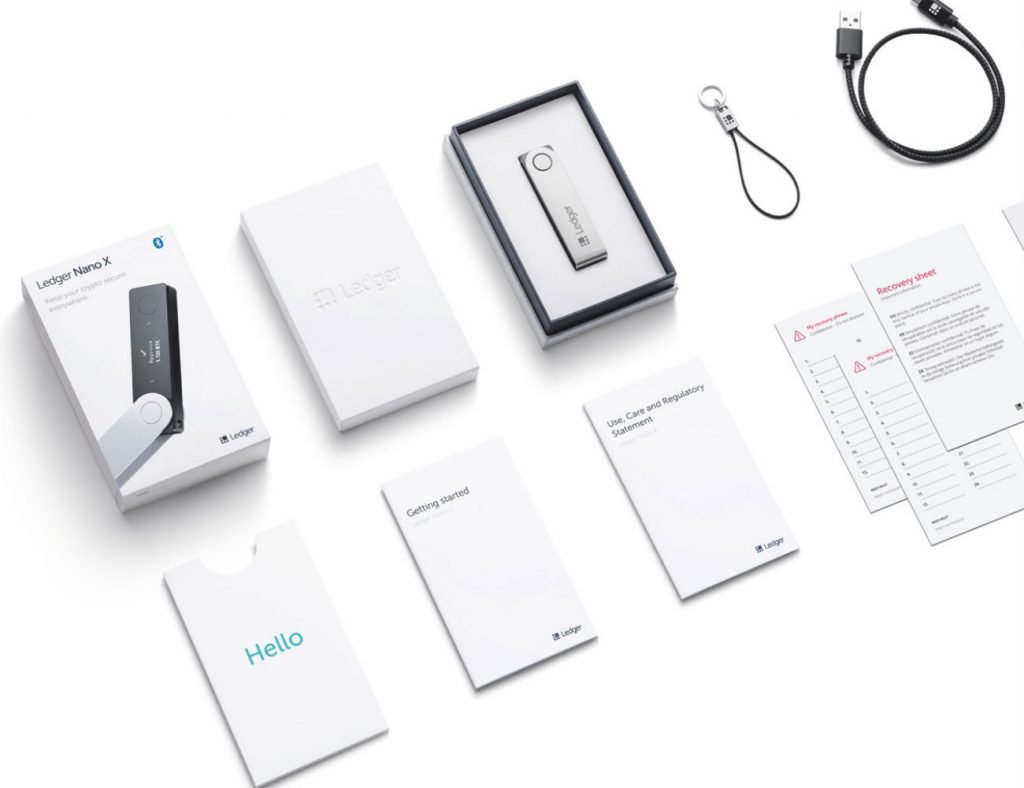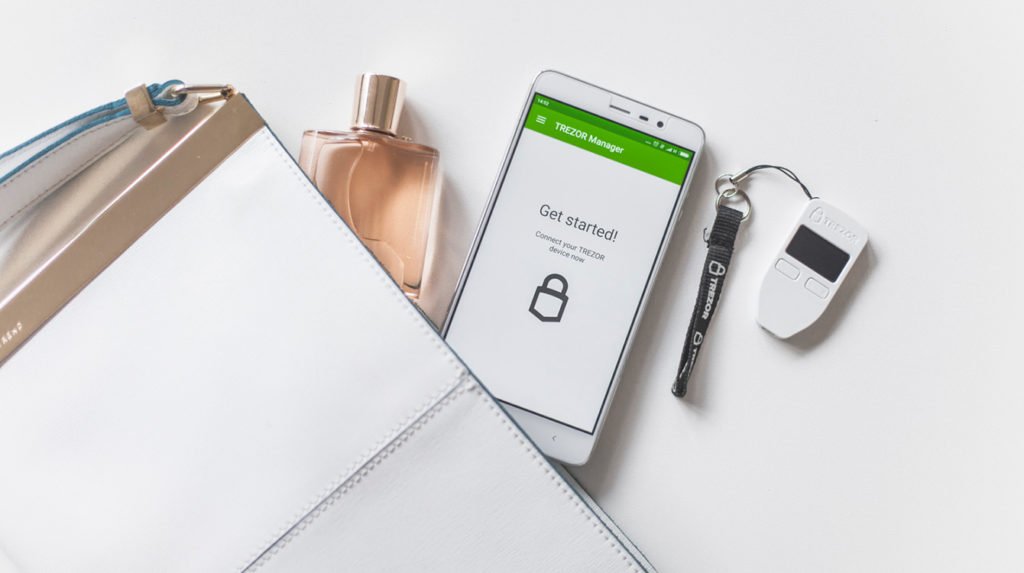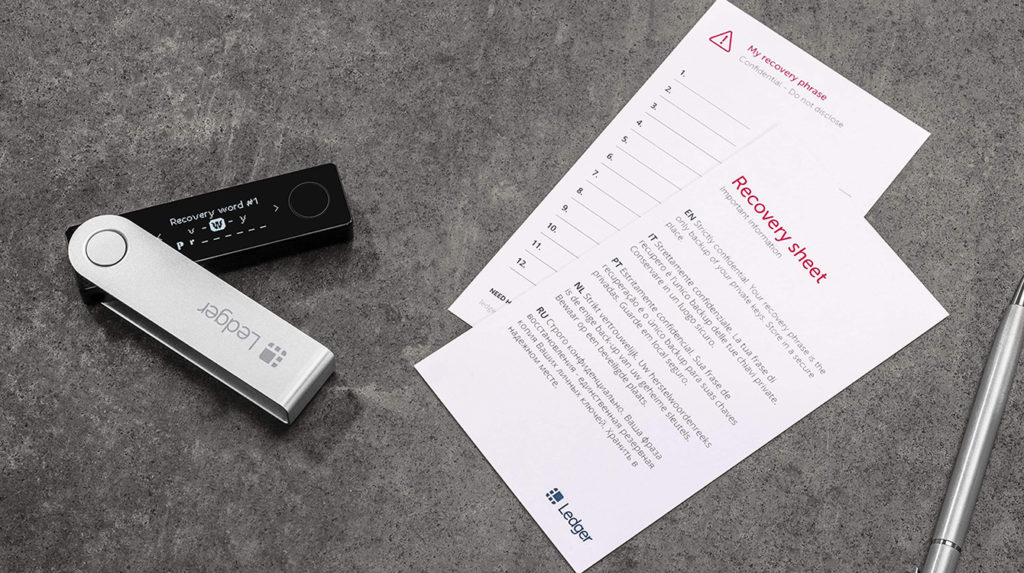Cryptocurrency Hardware Wallet FAQ
What is a Hardware Wallet?
A hardware wallet is a user-friendly electronic device which allows you to store digital assets (such as Bitcoin) in a safe and secure way.
The main difference between a hardware wallet and other forms of cryptocurrency storage is that your private keys (the cryptographic string of characters that gives access to the funds stored in your wallet) are completely hidden and cannot be exported. The advantage of this is that hackers or malicious viruses cannot steal the private keys that control your coins & tokens.
Another key advantage of hardware wallets is that transactions cannot be made without access to the physical hardware wallet device and it’s PIN code. If hackers were able to access your computer remotely with the hardware wallet connected to it, they still wouldn’t be able to access your funds. All transactions require physical confirmation via the buttons on the hardware wallet itself.

Why do I need a hardware wallet?
Currently the only other storage options available to cryptocurrency holders are exchange wallets, software wallets and paper wallets.
All of these types of wallets have security issues including exchange exit scams, computer hacks or are susceptible to the elements. Any single one of these events can lead to the complete and total loss of all of the stored assets which can be catastrophic.
For the relatively small cost of a hardware wallet you can rest assured that your cryptocurrency assets are as safe as possible.
For more information see our post on the various types of cryptocurrency wallets.
How many Bitcoins or Altcoins can I store in a hardware wallet?
As the hardware wallet itself only stores the private keys related to each coin’s blockchain, the amount is infinite. You can store $1 worth of Bitcoin or billions of dollars worth on a single hardware wallet. This is part of the magic of cryptocurrencies!
You can even have multiple copies of the same wallet or distribute your coins and tokens amongst several different wallets.
Which hardware wallet is best for me?
The core security of all the hardware wallets we sell is relatively similar. All have a high standard of security but there are some differences that you may want to take into consideration.
Budget
Both Ledger and Trezor have entry level hardware wallets which are priced around the $100 mark. If you prefer to have a few more bells and whistles such as colour touch screens or more app space the higher end versions are available for around $200 – $240.
Coin support
All of our hardware wallets support the main cryptocurrencies such as Bitcoin, Litecoin and Ethereum. If you are unsure if your specific altcoin is supported it’s worthwhile checking each device’s coin support before making a purchase.
Ledger coin support
Trezor coin support
Interface
One of the main differences between the Ledger and Trezor devices is their interface. Ledger have an app based system whereas Trezor uses a web wallet interface.
Take a look at the different interfaces online to see which suits you best.

What if I loose my hardware wallet or it breaks?
When you setup your hardware wallet for the first time, you will be given 24 seed words that can be used to restore your device. All you need is a new hardware wallet and your seed words to bring all of your coins (private keys) back.
The mnemonic seed words use a system called BIP 39 (Bitcoin Improvement Proposal 39). BIP 39 has an associated list of 2,048 English words which can be viewed on the Bitcoin Github. The 24 English words your device gives you are specific to your wallet and produce a long string of characters from which individual private keys are generated.
As both Trezor and Ledger wallets support BIP 39 mnemonic seeds they are interchangeable. You can generate a seed on a Ledger wallet and then import all of those wallets / private keys into a Trezor wallet and vice-versa.

What if Ledger or Trezor go out of business?
Both Ledger and Satoshi Labs (Trezor) have been operating for over 5 years now and are the most highly respected companies in the hardware wallet market. Although it’s unlikely that both of these companies would disappear in the near future, it’s important to consider your options for peace of mind.
The BIP 39 mnemonic seed phrase that you wrote down when setting up your device can be entered into any other hardware wallet or software wallet that supports this standard. There are many options currently available such as Jaxx Liberty or Coinomi.
Please note: entering your recovery phrase into your computer may be insecure. Avoid doing so if possible.
